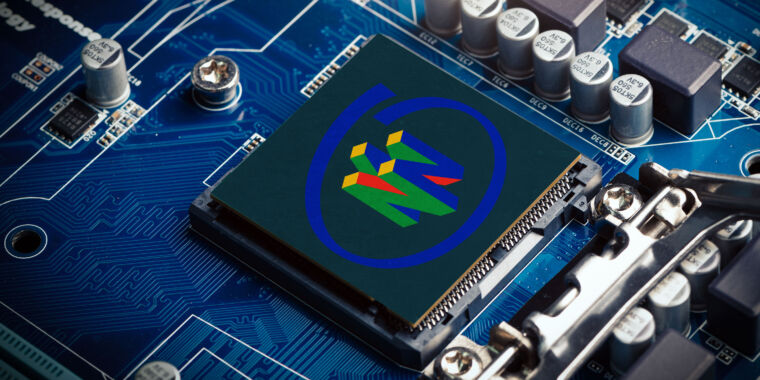Front page layout
Site theme
Kyle Orland –
Now, a newly released tool promises to vastly reduce the amount of human effort needed to get basic PC ports of most (if not all) N64 games. The N64 Recompiled project uses a process known as static recompilation to automate huge swaths of the labor-intensive process of drawing C code out of N64 binaries.
While human coding work is still needed to smooth out the edges, project lead Mr-Wiseguy told Ars that his recompilation tool is “the difference between weeks of work and years of work” when it comes to making a PC version of a classic N64 title. And parallel work on a powerful N64 graphic renderer means PC-enabled upgrades like smoother frame rates, resolution upscaling, and widescreen aspect ratios can be added with little effort.
Mr-Wiseguy told Ars he got his start in the N64 coding space working on various mod projects around 2020. In 2022, he started contributing to the then-new RT64 renderer project, which grew out of work on a ray-traced Super Mario 64 port into a more generalized effort to clean up the notoriously tricky process of recreating N64 graphics accurately. While working on that project, Mr-Wiseguy said he stumbled across an existing project that automates the disassembly of NES games and another that emulates an old SGI compiler to aid in the decompilation of N64 titles.
“I realized it would be really easy to hook up the RT64 renderer to a game if it could be run through a similar static recompilation process,” Mr-Wiseguy told Ars. “So I put together a proof of concept to run a really simple game and then the project grew from there until it could run some of the more complex games.”
A basic proof of concept for Mr-Wiseguy’s idea took only “a couple of weeks at most” to get up and running, he said, and was ready as far back as November of 2022. Since then, months of off-and-on work have gone into rounding out the conversion code and getting a recompiled version of The Legend of Zelda: Majora’s Mask ready for public consumption.
The main difficulty, Mr-Wiseguy said, can be figuring out where to point the tool. “The contents of the [N64] ROM can be laid out however the developer chose to do so, which means you have to find where code is in the ROM before you can even start the static recompilation process,” he explained. And while N64 emulators automatically handle games that load and unload code throughout memory at runtime, handling those cases in a pre-compiled binary can add extra layers of complexity.
Join the Ars Orbital Transmission mailing list to get weekly updates delivered to your inbox. Sign me up →
CNMN Collection
WIRED Media Group
© 2024 Condé Nast. All rights reserved. Use of and/or registration on any portion of this site constitutes acceptance of our User Agreement (updated 1/1/20) and Privacy Policy and Cookie Statement (updated 1/1/20) and Ars Technica Addendum (effective 8/21/2018). Ars may earn compensation on sales from links on this site. Read our affiliate link policy.
Your California Privacy Rights |  Do Not Sell My Personal Information
Do Not Sell My Personal Information
The material on this site may not be reproduced, distributed, transmitted, cached or otherwise used, except with the prior written permission of Condé Nast.
Ad Choices
